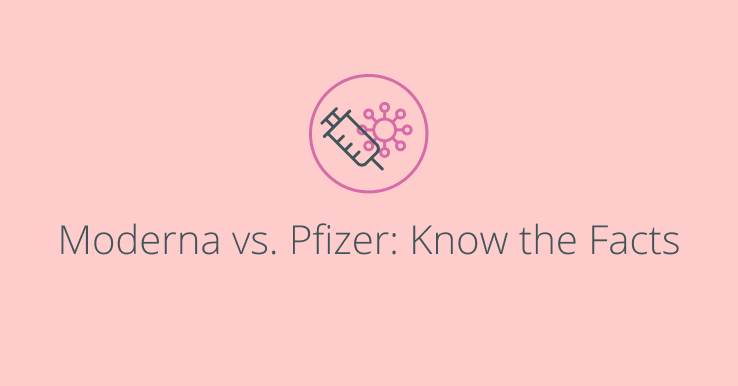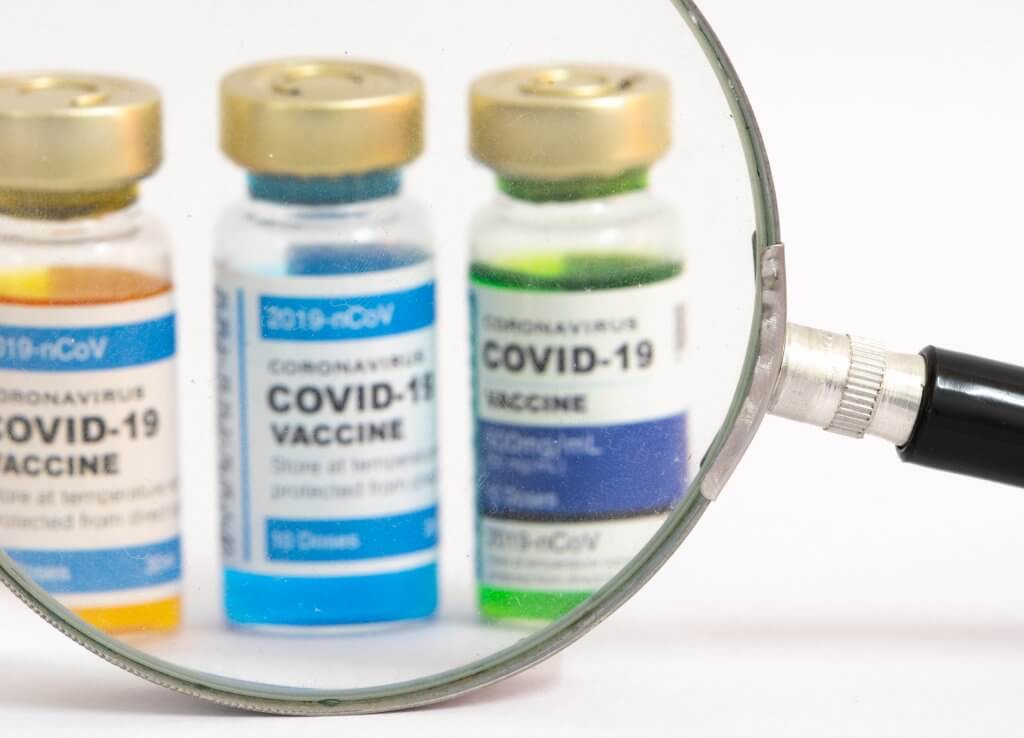On November 16, 2020, drugmaker Moderna announced that its COVID-19 vaccine candidate is 94.5% effective based on an early analysis of study results. This is the second company to release promising data; Pfizer and its partner BioNTech announced their preliminary results exactly one week prior, and their final analysis suggests that their vaccine has a similar effectiveness of 95%. While these findings bring hope after bleak months of the pandemic, we are still in early stages. As the market leader in COVID-19 solutions, we have compiled information to help you compare and contrast Moderna’s vaccine candidate and Pfizer’s candidate.
The two vaccines share many similar characteristics, but an important difference has more to do with distribution considerations than with efficacy. Moderna’s temperature control requirements will make it easier to distribute and store than Pfizer’s vaccine. Eden’s COVID-19 Vaccine Task Force will continue to monitor each vaccine candidate and break down what this means for you and your employees.

Study Details
Moderna’s trial involved 30,000 volunteers. Of the 15,000 participants who received placebo injections, 90 contracted COVID-19, with 11 experiencing severe symptoms. Of the 15,000 participants who received the two vaccine doses four weeks apart, only five of them contracted the novel coronavirus, with zero becoming severely sick.
Pfizer’s study, on the other hand, included 43,538 participants. Each volunteer received two injections three weeks apart, and then similar to Moderna’s trial, researchers compared the number of coronavirus cases in participants who received the vaccine to those who received a placebo. Of the reported 170 COVID-19 cases, 162 had received the placebo injections, and eight had received the vaccine. Out of 10 instances of severe infection, nine had received the placebo.
Both studies are double-blind, meaning that neither the participants nor the study administrators know whether volunteers receive the vaccine or the placebo. This strategy is designed to prevent any biases from influencing the evaluation of the outcomes.
Effectiveness
In order to be approved by the Food and Drug Administration, COVID-19 vaccines need to be at least 50% effective. On November 18, Pfizer announced that its vaccine is 95% effective, and Moderna has shown that its candidate is 94.5% effective based on early results. Both rates of effectiveness are higher than most scientists anticipated. However, this data may change as studies continue; both companies have announced these results in news releases rather than peer-reviewed scientific journals, so these findings may be updated as more information becomes available.
Dosage
Both vaccine candidates require two doses. Pfizer’s vaccine is administered with three weeks between immunizations, and Moderna’s vaccine is administered with four weeks between immunizations.
Side Effects
Thus far, the two vaccine studies have not had evidence of serious side effects. Some study participants have reported fatigue, sore arms, fever, and muscle aches that last for a day or two.
The Science Behind the Vaccine
Both vaccine candidates utilize synthetically derived messenger RNA, or mRNA, which is genetic material that prompts the cells in our bodies to produce the spike protein of the novel coronavirus. The presence of this protein primes the immune system to attack if the body becomes infected with the real virus in the future.
Availability
Moderna stated that it will produce 20 million doses by the end of the year, which is enough to vaccinate 10 million people given that each person needs two shots. The company also said that it could produce 500 million to 1 billion doses in 2021. Pfizer said it will supply 25 million doses in 2020 and a total of 100 million by March. Vaccinations could start as soon as the latter part of December with high-risk groups, but it will most likely not be available for the general public before next spring.
Storage
Both vaccine candidates need to be distributed and stored at low temperatures. For example, the Pfizer vaccine must be kept at -70 degrees Celsius, a requirement no other vaccine in the US currently needs. Most pharmacies and doctors’ offices don’t have freezers that accommodate such low temperatures, which makes distribution particularly difficult in low-income areas and places with warmer climates. Luckily, Moderna’s vaccine can be kept at -20 degrees Celsius. Other vaccines, like the chickenpox vaccine, need to be stored at similar temperatures, so many medical facilities are already prepared for Morderna’s requirements.
Additionally, Moderna’s vaccine has a longer shelf life under refrigeration. It can be kept in the refrigerator for up to 30 days and be left at room temperature for up to 12 hours. Conversely, Pfizer’s vaccine can only last five days in the refrigerator.
Cost
Both vaccines will be provided by the US government free of charge. The two companies do plan to profit, however, rather than provide their products to the government at cost. Moderna stated it would charge the US about $24.80 per dose and other governments between $32 and $37 per shot. Pfizer did not receive any money from the US government to make or test its vaccine and is expected to provide the government with 100 million shots at around $19.50 a dose.
—
Moderna and Pfizer have both released promising initial findings, putting them on track to receive emergency authorization. Our Vaccine Task Force is keeping a close eye on progress and will continue to provide updates. For more answers to your FAQs, check out our recent blog post highlighting Pfizer’s EUA.
Sources:
Early Data Show Moderna’s Coronavirus Vaccine Is 94.5% Effective
Moderna’s coronavirus vaccine is 94.5% effective, according to company data
New Pfizer Results: Coronavirus Vaccine Is Safe and 95% Effective
Disclaimer: This information is based on current resources available and is subject to change. This document and its contents are provided for informational purposes only, and not intended to be, and should not be understood or treated as, a substitute for professional medical advice around COVID-19, its risks or symptoms, or to take the place of any local, state and national laws and guidelines around COVID-19. Always seek the advice of a physician or other qualified health provider with any questions you may have regarding a medical condition.





